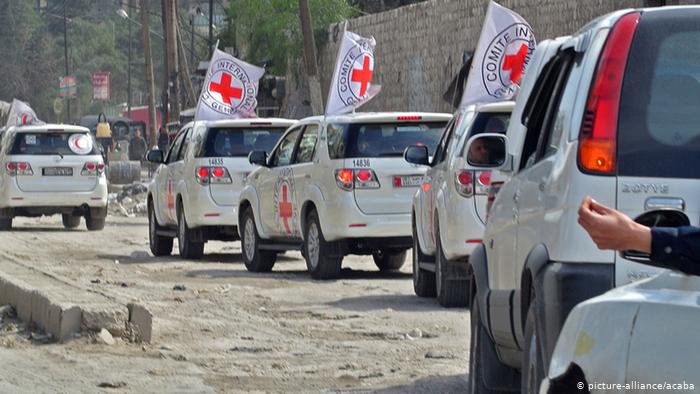Half of the Syrian population has fled their homes. Tens of thousands, if not more, have been imprisoned. Around a third of the population requires humanitarian aid and more than a million people will die from starvation. Almost all the news coming out of Syria revolves around ISIS and the ongoing power struggle. We have become desensitized to the ongoing human toll of the conflict in Syria. “Very quietly governments have been pouring billions of dollars every year to provide humanitarian assistance in Syria.” This is how John Alterman, Head of the Middle East Program in the Center for Strategic and International Studies (CSIS) described the situation. This was the opening statement at the seminar held by the center on March 15, 2021 to discuss the situation after a decade-long conflict in Syria.
Poor conditions
Alex Mahoney, Director of Humanitarian Aid for Syria at the American Agency for International Development (USAID), spoke of deteriorating economic and humanitarian conditions in Syria, especially since the beginning of the COVID-19 pandemic, during which at least 264 aid workers lost their lives. 60% of the Syrian population suffers from food insecurity, while food prices have increased 236% since December 2019, and malnutrition has also been on the rise. Furthermore, gender-based violence, random attacks on civilian infrastructure, and direct violations of human rights run rampant.
The World Food Program estimates that about 12.4 million Syrians are now facing food insecurity, up 4.5 million in the last year alone. Alongside violence and the dangers of famine, inflation and economic decline are putting further pressure on Syrians. Therefore, it is crucial that Syria receives food aid, medical aid and relief, in addition to long-term assistance with housing, job opportunities, basic services, and educational stability. It is important to note that the United States is the largest donor of humanitarian aid in Syria and the region, contributing more than USD12.2 billion since the beginning of the conflict.
Mahoney called for the need to renew UN Security Council Resolution No. 2533, which authorizes the United Nations to deliver aid to northwest Syria, arguing that the ability to vaccinate the population in northwestern Syria is completely dependent on the renewal of this resolution. He also urged international donors to focus their resources on more pressing issues such as the food crisis that Syrians face on a daily basis.
Multiple Obstacles
Despite the difficult humanitarian situation in Syria, and the intensive assistance it requires, the participants in the symposium pointed out several obstacles facing humanitarian and relief efforts there, including:
1) Difficulty of access: According to Basma Alloush, a Policy and Aid Advisor at the Norwegian Refugee Council, organizations that are not officially registered with the Syrian government rely on unofficially crossing from neighboring countries. In 2015, Security Council Resolution No.2254 formalized this type of entry to reach Syrians in areas not controlled by the government. However, as the government began regaining control throughout the country, crossing points for NGOs diminished to just one in northwestern Syria from Turkey.
While some NGOs are still using unofficial crossing points to reach northeastern Syria and other areas as well, many such organizations have withdrawn from areas retaken by the government, as they are not officially registered. This has left it in the hands of the United Nations and some international NGOs officially registered with the Syrian government to provide aid and assistance in the country.
Alloush called on NGOs to work with the United Nations to remove these imposed barriers and create greater space and opportunities for civil society organizations to reach Syrians, all over Syria, regardless of the party in control on the ground.
2) Health sector challenges: Amani Kaddour, Regional Director of the Syria Relief and Development Organization, pointed out that the conflict has had a great cost on the Syrian health sector, as the health infrastructure has been the target of many military operations and attacks. Casualties among healthcare workers, along with an increase in human rights violations against humanitarian workers, are variables that have led to a shortage in medical personnel. Adding to that displacement and overcrowding has led to the spread of infectious diseases, such as COVID-19, polio and cholera.
3) Bureaucratic and legal obstacles: Mays Balkhi, Director of the Humanitarian Practices Program at InterAction, explained that there are obstacles that affect the work of relief organizations in Syria, including legal obstacles in the process of registering NGOs, work permits, and visas. For example, to work in areas controlled by the Syrian government, an organization must be legally registered in Damascus. Furthermore, to conduct cross-border operations between Syria and Turkey, legal registration in Turkey is required.
Balkhi stated that humanitarian organizations avoid operating in areas where terrorist groups are located, despite the fact that these areas are the most in need of assistance, due to financial concerns related to the penalties that arise as a result of breaking anti-terrorism laws, especially those related to financing terrorism. Some donors have provisions that prohibit NGOs from providing assistance to anyone living in areas controlled by terrorist organizations.
On a related note, Jacob Kurtzer, Director of the Humanitarian Agenda at the Center for Strategic and International Studies, pointed out that the issues related to minimizing risk and operating in areas where there are groups classified as terrorist pose a challenge for a period of 15-20 years. This prompted US President Joe Biden, to delist the Ansar Allah al-Houthi group as a terrorist organization, mainly to help accelerate humanitarian efforts in Yemen.

